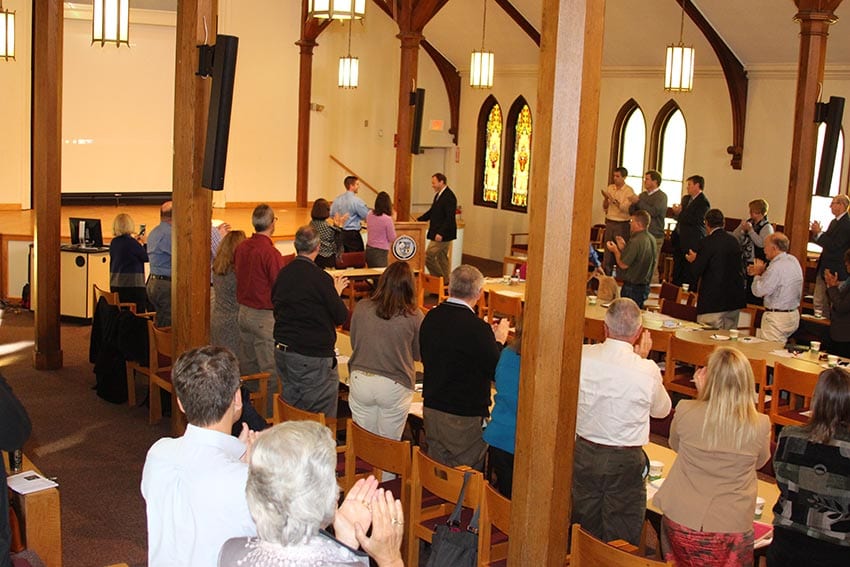February 27, 2016
Bangor Daily News
By the BDN Editorial Board
The need for additional affordable housing for Maine’s senior residents is clear: A recent study found that 9,000 households headed by someone over 55 are on waiting lists for housing that is within their financial reach.
Maine residents understood the problem, and last November they overwhelming supported a $15 million bond to construct more affordable housing for seniors. Immediately after the vote, Gov. Paul LePage criticized voters for approving the borrowing, saying it would hurt the state’s credit rating, a notion debunked by the state’s treasurer. He didn’t make the same claim about an $85 million transportation bond that voters also approved and LePage himself supported.
The governor has held voter-approved bonds hostage for ideological reasons for years. He refused to authorize the sale of Land For Maine’s Future bonds that had strong voter support until lawmakers approved his plan to increase timber harvesting on public lands and direct the additional revenue to fund a heating efficiency program for Maine’s poor. The Legislature didn’t approve the plan, but LePage said late last year he would allow the issuance of $5 million in bonds for land conservation. In January, he agreed to revive another $6.5 million in bonds that had expired.
It is important to protect access to fishing piers and open space and to help farmers and woodlot owners keep their properties, which LMF does. It is even more pressing to have more affordable housing available to Maine’s aging population.
That’s why the senior housing bond money should not be hung up.
LePage’s office said he would meet with officials from the Maine State Housing Authority in the next several days, which is encouraging. The authority’s chairman wrote to LePage earlier this month asking for clarity on a bond sale. “Before we encourage developers to invest their time and money and before we obligate staff resources to this project, it would be helpful to know if and when you plan to approve the bonds,” Peter Anastos wrote. The bond money, which would be matched by more than $22 million in federal funds, is earmarked to build about 250 affordable and energy-efficient housing units for older residents. Several the projects must be in rural areas.
Given statements LePage made when the bond — which initially totalled $65 million — was first proposed, he does not oppose the Maine State Housing Authority building more affordable housing. He objects to general obligation bonds being used to finance the work. But Maine voters settled that debate in November when they approved the $15 million bond by a 2-to-1 margin. That money must be used to build senior housing, as the voters directed.
Maine has the second highest percentage in the nation of residents age 65 and older, with 50 more people turning 65 every day. Maine also has the eighth-oldest housing stock in the country, with nearly a third of homes and apartment complexes built before 1950. These homes are generally not energy-efficient or built to accommodate seniors, who may have mobility concerns.
Further, about a third of older Mainers live on Social Security alone, with an average annual benefit of about $13,000, according to the Maine Council on Aging. As a result, 21 percent of the state’s elderly were living in unaffordable housing in 2012, according to a study by Abt Associates. More than half of the seniors living in rental properties spent more than 30 percent of their income on housing.
The bond approved by voters in November is a small step in addressing this problem. The money should be put to its intended use. The sooner the better.
Click here to view the original article.


